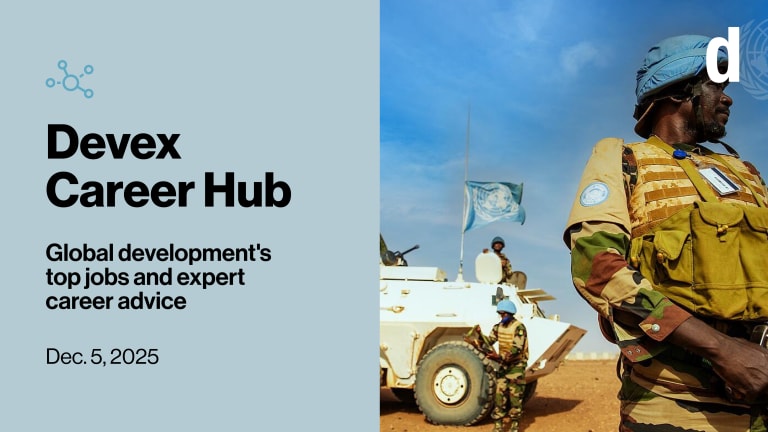
NEW YORK — The United Nations’ relief and development organization for Palestinians, UNRWA, may need to delay opening schools this year as it reels from the recent loss of funding from the United States, previously its largest donor.
Pierre Krähenbühl, UNRWA’s commissioner-general, is expected to announce this week whether the lack of funding will push its primary schools — which educate half a million children in Gaza and the West Bank — to delay their opening this fall. The deliberation marks the latest impact of the funding cuts, which have placed UNRWA in an “existential situation,” said Elizabeth Campbell, director of its Washington, D.C., office.
European donors fast-track UNRWA funding to plug US gap
The governments of Sweden, Belgium, and the Netherlands have announced immediate disbursements of funding to the United Nations agency for Palestinian refugees in recent days, after the United States government said it was "freezing" $65 million of funds.
“The biggest challenge we faced this year is the uncertainty, the lack of preparedness we had for this unanticipated decision by the U.S. So it has thrown our planning, operations, and priorities and focus into an area we had not anticipated,” Campbell said.
“I think it is difficult to cut back further. We basically have been doing that for several years and are at the bare bones right now.”
The U.S. informed UNRWA that it was going to cut its funding to the agency in January, resulting in an 83 percent cut from funding levels in 2017 — or, a drop from $360 million in 2017 to $60 million in 2018.
The U.S. had been UNRWA’s largest donor for several decades and the loss was severe, resulting in layoffs of several hundred teachers shortly after. At the time, UNRWA warned it might have to delay the opening of the next school year.
“We immediately had to scramble to meet that huge deficit,” Campbell said.
Protests in July then greeted the announcement of likely layoffs for an additional 270 teachers, in addition to more than 500 workers being reduced to part-time.
“That was sort of what I describe as a small indication of what can happen if the larger parts of programs are not there,” Campbell said.
UNRWA is the second-largest employer in Gaza, behind only the Palestinian Authority. Approximately two-thirds of children there attend UNRWA schools, which run through the ninth grade.
“There is no other agency that can easily come in to do what we do.”
— Elizabeth Campbell, director of UNRWA’s representative office in Washington, D.C.A donor conference in the spring brought in $100 million for UNRWA from donor countries both old, such as the European Union and Germany, and new, such as China.
“Our strategy has been to invest every moment of our time in resource mobilization. We have tapped the traditional donors and they have responded, and also have turned to nontraditional donors,” Campbell said. “We continue to look at so-called nontraditional donors. More broadly, we are talking to the World Bank about ways in which they can partner with us to help us.”
UNRWA now has a deficit of $218 million it is trying to close. The organization maintains an average $1.2 billion annual budget, but needs have been rising as Gaza’s population grows at one of the fastest global rates, Campbell noted.
Avoiding further cuts to schools and food aid, needed by about half of Gaza’s 2 million people, are key priorities.
“The most important area [of work] for us is to protect our school system. It’s a big question for us, and the second issue is more than 1 million people in Gaza receive food aid [from] us,” Campbell said. “We know there are few alternatives for them. To date, we have had to engage in a wide variety of austerity measures and to cut back on certain programs.”
Part of the challenge stems from the scope of UNRWA’s work, which is all carried out directly by the agency, not backed by any implementing partner or contractor, Campbell said.
“There is no real alternative to UNRWA in the work that we do, because of the scale and scope of our operations. There is no other agency that can easily come in to do what we do. It is not that simple that someone else will pick it up.”








